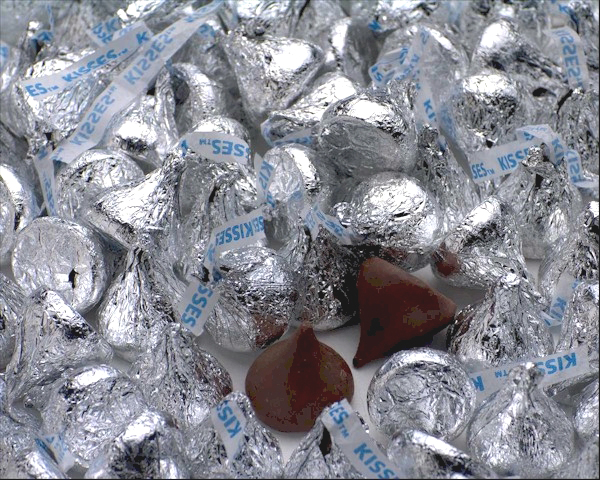 Thank you for calling the Affordable Car Administration. This is Brenda, how may I direct your call?
Thank you for calling the Affordable Car Administration. This is Brenda, how may I direct your call?
Hi Brenda, this is An… Hey, you sound familiar. Didn’t I talk to you about needing an attorney because I left my keys in the car?
Why yes, I believe you did! Mr. Wood, is it?
Yeah, that’s me. And then you were at that firm looking for heroes or something?
Quite correct, sir. Unfortunately that didn’t work out so well.
Why’s that?
The recession. All our heroes were unemployed, so they signed up for government work.
And the attorneys?
The same. You know that they say… “The best place for an out-of-work lawyer is in making more laws for all of us to enjoy!”
Well I’m glad to hear a familiar voice there, Brenda. I’m in a world of hurt. I just got this notice in the mail that says, “Your current vehicle is being discontinued as of January 1.” Then I’m supposed to purchase a new one that meets the minimum requirements of the ACA?
Well congratulations are certainly in order, sir! I know you’re going to enjoy driving your new automobile. [click to continue…]
 Somebody just stumbled into a chicken-and-egg situation. And I’m not talking about foxes in the henhouse. This is more of the “What came first?” variety. And the answer to that proverbial question has profound implications for your life.
Somebody just stumbled into a chicken-and-egg situation. And I’m not talking about foxes in the henhouse. This is more of the “What came first?” variety. And the answer to that proverbial question has profound implications for your life.
Here’s the back story…
The Bureau of Labor Statistics recently published a report outlining how the average American spends his or her money. Assuming you’re average, you spend a third of your income on housing, 17% on transportation, 13% on food, 11% on insurance, and 7% on healthcare. Entertainment lags back at 5% and the average American gives 4% to churches or charities. Interesting, there was no mention of debt service, at least in the report I read.
Of course, who’s average, right? So Derek Thompson of The Atlantic did some more figuring. He split up income categories into quintiles – the top 20%, the bottom 20%, and the three in the middle. He then compared how the top fifth spend their money proportionally, compared to the bottom fifth.
Would it come as a shock that there is a difference? [click to continue…]

Economics doesn’t have to be difficult. Just ask my three-year-old grandson…
Understanding Liberalism (True Story)
Cohen: Papa can I have a treat?
Papa: What do you want? [click to continue…]
 Isn’t it rich?
Isn’t it rich?
Are we a pair?
Me here at last on the ground,
You in mid-air.
Send in the clowns.
Isn’t it bliss?
Don’t you approve?
One who keeps tearing around,
One who can’t move.
Where are the clowns?
Send in the clowns.
-from “Send in the Clowns”
No, that’s not the theme song to the next installment of the U.S. Congress. Then again…
Yesterday I introduced you to a group of Christ followers who were living in a world of mirrors. The good people of Laodicea were living with the bling, but God had a different estimate of their true wealth. And in His correction, He revealed some things about a completely different economy that is in operation all around us. For review, here are the principles we looked at yesterday:
Principle #1: The root nature of sin is a declaration of independence from God.
Principle #2: God has a system of economy unlike the world’s system.
Principle #3: “Economy” is the exchange of all the commodities of life.
Principle #4: Money has a unique place in the commodities of life.
Principle #5: It is possible to be rich in the world’s economy and bankrupt in God’s.
So here the scenery changes, and God has some encouraging things to say to His loveable losers: [click to continue…]
 It was the Beverly Hills of ancient Asia. A center of wealth and high-end commerce. A medical haven, where people came from miles around for treatment of various ailments. If you wrote your mama and told her your job was transferring you there, she’d have something to brag about the next day. This was some place. And there was a church in town.
It was the Beverly Hills of ancient Asia. A center of wealth and high-end commerce. A medical haven, where people came from miles around for treatment of various ailments. If you wrote your mama and told her your job was transferring you there, she’d have something to brag about the next day. This was some place. And there was a church in town.
How would you like to get a personal letter from Jesus Christ, where the first thing he said was, “I know what you’ve been doing”? That can be a little unnerving! But that’s exactly what Jesus said to the First Church of Coolville, alias Laodicea. He had a few other things to say as well. Let’s peek at their mail:
I know your deeds, that you are neither cold nor hot. I wish you were either one or the other! So, because you are lukewarm – neither hot nor cold – I am about to spit you out of my mouth. You say, “I am rich; I have acquired wealth and do not need a thing.” But you do not realize that you are wretched, pitiful, poor, blind and naked. I counsel you to buy from me gold refined in the fire, so you can become rich; and white clothes to wear, so you can cover your shameful nakedness; and salve to put on your eyes, so you can see (Revelation 3:15-18).
Looks like the guys and dolls in Lala Land had a few things to learn about wealth.
So do we.
They thought they were loaded; Jesus said otherwise. Remember, though, that in spite of its scathing message, this was a love letter. And in his love, Jesus gave them, and LifeVestors everywhere, a few pointers on His economy. [click to continue…]
 What do you do when you’ve done what you know to do, and what you know to do isn’t working this time? How do you explain the fact that time-tested methods for producing results, solving problems, and getting ahead just aren’t working this time? How do you plug the leaks in your economic life?
What do you do when you’ve done what you know to do, and what you know to do isn’t working this time? How do you explain the fact that time-tested methods for producing results, solving problems, and getting ahead just aren’t working this time? How do you plug the leaks in your economic life?
Questions like these are front and center among politicians, economists, investors, and families these days.
The problem isn’t a shortage of solutions. The problem is that that the solutions we know are supposed to work aren’t working.
We’re like a wad of sailors on a stormy sea, who keep running to opposite sides of a ship to steady it in the waves – while all the while, the hull is leaking. I’ve seen it at kitchen tables; I’ve seen it at capital buildings. Everything we do to steady the ship just draws in more water, and sailing has turned to bailing.
I wonder if anybody is asking – really asking – God.
(Aw, what does HE know?)
Plenty, it would appear. This isn’t the first time politicians and businesspeople confronted a leaky economy. [click to continue…]
 Imagine being the captain of a historic sailing ship – a master of commerce and an expert in trade throughout the Mediterranean. You live to taste the salt in the air, to roam from port to port, from culture to culture, bringing value, goods, and trade to each. You perform a greatly-needed service, and your work is honorable.
Imagine being the captain of a historic sailing ship – a master of commerce and an expert in trade throughout the Mediterranean. You live to taste the salt in the air, to roam from port to port, from culture to culture, bringing value, goods, and trade to each. You perform a greatly-needed service, and your work is honorable.
And, let’s just assume that you’re greatly blessed and good at what you do. Your business has prospered as you have prospered others.
And, while we’re assuming, let’s just assume that you recognize the source of all your blessings, and seek to live gratefully and humbly before your Creator.
Too bad.
Storm’s coming anyway.
[click to continue…]
 Thank you for calling the Affordable Car Administration. This is Brenda, how may I direct your call?
Thank you for calling the Affordable Car Administration. This is Brenda, how may I direct your call?




